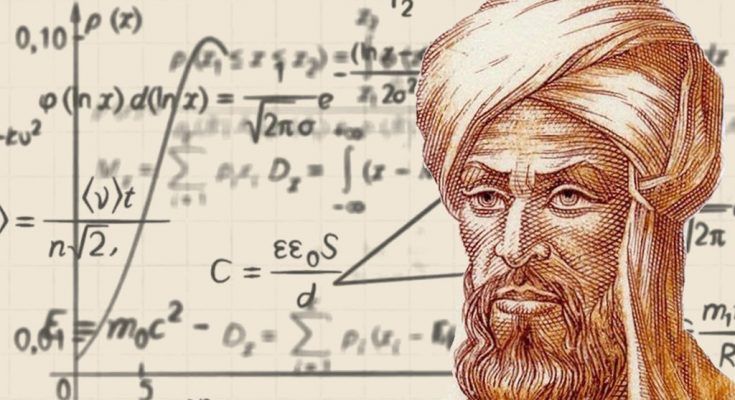Muhammad Al-Khwarizmi: Father of Algebra Mathematics and Algorithms
Many do not know that Algebra and Algorithm is the result of the thought of a genius Muslim mathematician named Muhammad Al-Khwarizmi who had been head of Bayt al-Hikma, House of Wisdom in the 9th century.
Originally he was a member of Khwârazm (modern Khiwa) residing in Turkistan but he continued his scientific career in Baghdad and all his works are in Arabic. He was summoned to Baghdad by the Abbasid Caliph Al-Ma'mun (213-833), who was a protector of knowledge and learning.
It is said that he was an Arabic writer of one of the oldest tables of astronomy, one of the oldest works on arithmetic and the oldest work on algebra; Some of his scientific contributions were translated into Latin and used until the 16th century as a major mathematical textbook in European universities.
Muhammad Al-Khwarizmi made a translation of the major mathematical and astronomical works of Greek and Indian including Brahmagupta into Arabic, and produced original works that had a great influence on the progress of Muslims and the world after his works spread to Europe through the Latin translation of the 12th century .
The word "algorithm" comes from the language "al-goremet", and the word "algebra" comes from the language "al-jabr", part of the most famous title of his book, where he introduces fundamental algebraic methods, and techniques for solving equations.
Perhaps his most important contribution to mathematics is his strong advocacy of the Hindu numerical system, which Al Khawarizmi is known to have the power and efficiency needed to revolutionize the mathematics of Islam and the West.
Hindu numbers 1 - 9 and 0 - which from then on are known as Hindu-Arabic numbers soon adopted by the whole Islamic world. Later, with Al-Khwarizmi's translation into Latin by Adelard of Bath and later mathematicians in the 12th century, and with their Fibonacci "Liber Abaca" influence will also be adopted throughout Europe.
Another important contribution of al-Khwarizmi is algebra, a word derived from the title of a mathematical text which he published in about 830 called "Al-Kitab al-mukhtasar fi hisab al-jabr wa'l-muqabala" (The Compendious Book on Calculation, With Completion and Balancing).
According to Galal S.A. Shawki, in this book al-Khwarizmi defines algebra as an independent student in mathematics, and accelerates the recognition of place value. This book is devoted to finding solutions to the practical problems facing Muslims in daily life on issues of inheritance, property, lawsuits and commerce, with over eight hundred examples.
The original work in Arabic was written in 820 AD and translated into Latin in the 12th century. It should be said that the term al-jabr, in the form of algebra latin, has found its way into modern languages, while the old mathematical term algorism is the distortion of al-Khwarizmi's name.
Al-Khwarizmi wanted to find a specific problem-solving considered by the ancient Indian and Chinese calculators to a more scientific way to analyze the problem, and in doing so, he invented a new abstract mathematical language used throughout the world today.
His book is considered a basic text of modern algebra, although he does not use the kind of algebraic notation used today (he uses words to explain his problem, and diagrams to overcome it).
However, this book provides a full explanation of the solving of polynomial equations to the second level, and introduces for the first time the fundamental algebraic method of "subtraction" (rewriting a simpler phrase), "completion" (moving the negative quantity from One side of the equation to the other side and change the sign) and "balance" (equal reduction of both sides of the equation, and the cancellation of similar requirements on the opposite side).
In particular, Al-Khwarizmi developed a formula for solving systematic quadratic equations (equations involving unknown numbers with powers 2, or x2) using settling and balancing methods to reduce any equation to one of the six standard forms, which then unite .
Al-Khwarizmi is usually credited with the development of the method of lattice multiplication (or sieve) to multiply large quantities, a method which is algorithmally equivalent to multiplication of length. His lattice method was then introduced to Europe by Fibonacci.
In addition to his work in mathematics, Al-Khwarizmi made an important contribution to astronomy, and he developed the first quadrant (an instrument used to determine time with observations of the Sun or stars), the latter making astronomical tools widely used during the middle ages after the astrolabe media. He also produced a revised and completed version of "Geography" Ptolemy, which consists of a list of 2,402 coordinates of cities around the world known.
THANKS FOR VISITING MY BLOG
Best Regards
